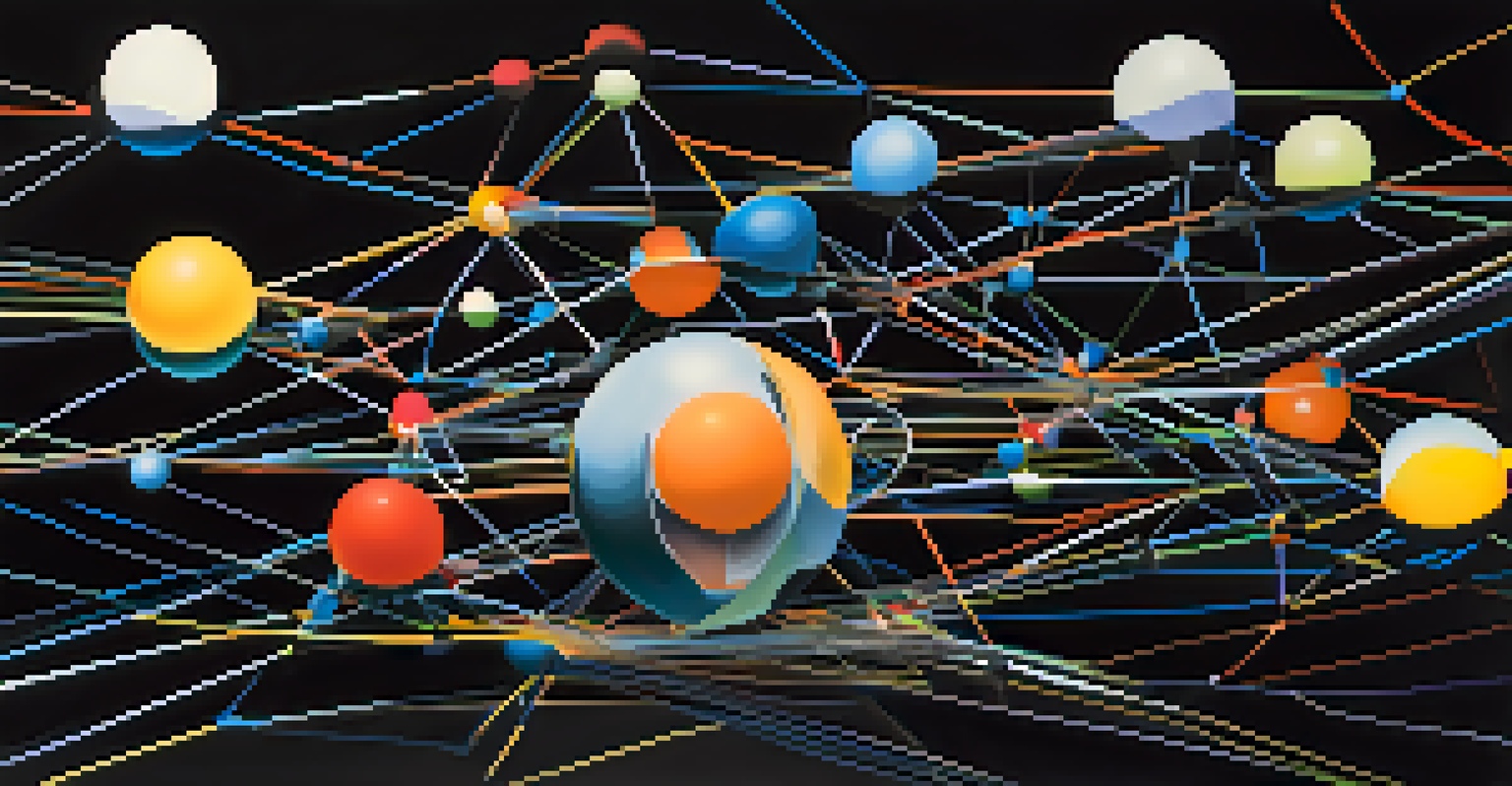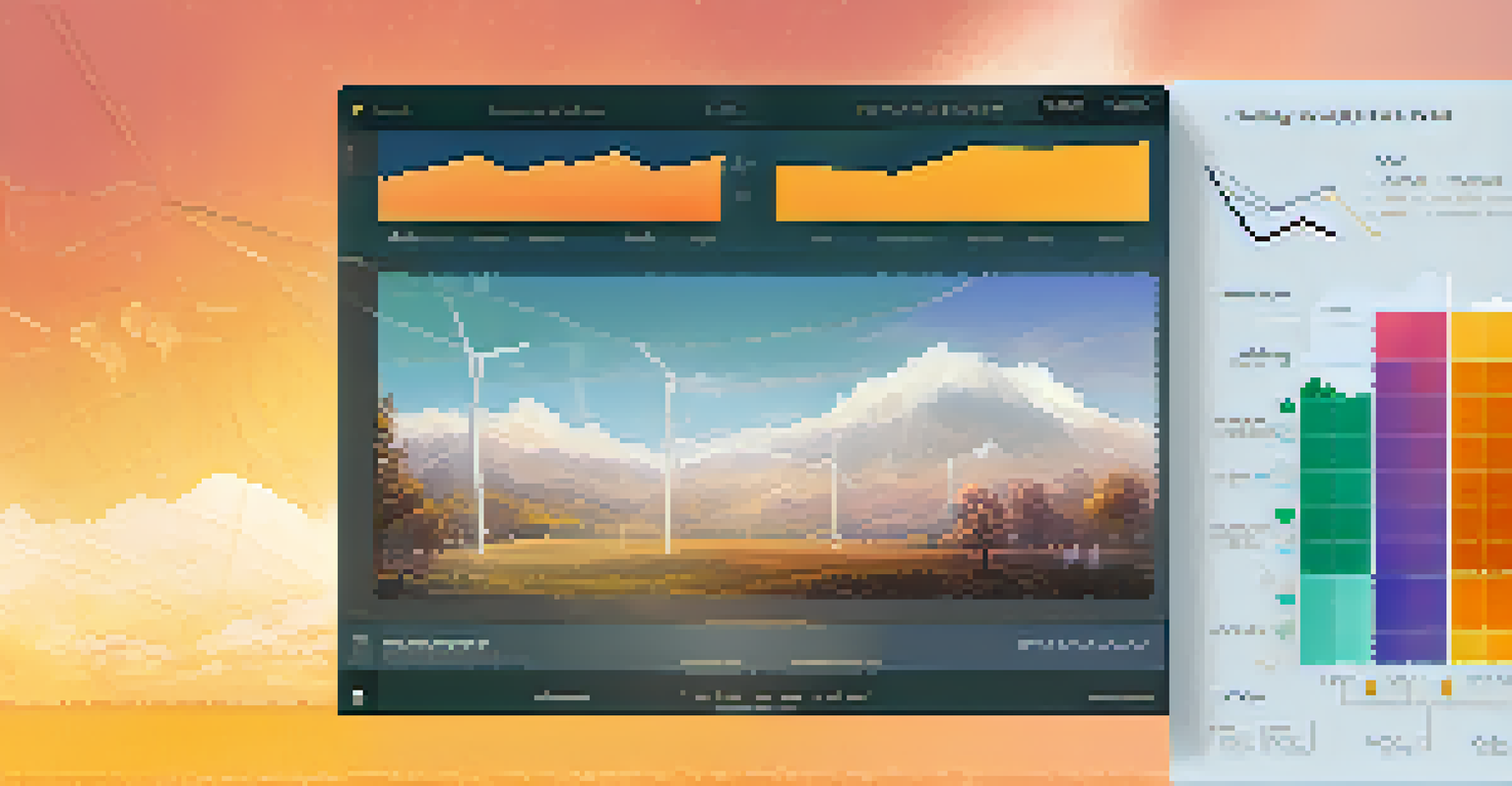The Future of Decentralized Oracles in Blockchain Technology

Understanding Decentralized Oracles: A Quick Overview
Decentralized oracles serve as bridges between blockchain networks and real-world data. Unlike traditional oracles, which can be single points of failure, decentralized oracles aggregate data from multiple sources, ensuring accuracy and reliability. This setup is crucial for smart contracts that rely on real-time data to execute, like those in finance or insurance.
Data is the new oil, and decentralized oracles are the pipelines that transport it to where it is needed most.
Imagine a weather-dependent agricultural contract that triggers payments based on rainfall data. A decentralized oracle collects data from various meteorological services, providing a consensus that ensures farmers receive accurate information. This minimizes the risk of manipulation and enhances trust in the smart contract's execution.
In essence, decentralized oracles democratize data access, making it more secure and resilient. As blockchain technology evolves, the importance of trustworthy data sources, delivered by decentralized oracles, will only grow, paving the way for more sophisticated applications.
The Role of Decentralized Oracles in Smart Contracts
Smart contracts, which automatically execute when predefined conditions are met, depend heavily on accurate data. Decentralized oracles provide this crucial link, allowing smart contracts to interact with real-world events. This capability opens doors to diverse applications, from automated trading to insurance claims processing.

For instance, consider a smart contract that releases funds for a wedding only if it doesn't rain on the specified date. A decentralized oracle can aggregate weather data from multiple services to accurately determine whether conditions were met. This real-time data interaction not only enhances contract reliability but also user confidence.
Decentralized Oracles Enhance Trust
By aggregating data from multiple sources, decentralized oracles reduce the risk of manipulation and ensure reliable information for smart contracts.
By bridging the gap between blockchain and the outside world, decentralized oracles are essential for the future of smart contracts. They ensure that these digital agreements can respond to real-time conditions, making them more functional and trustworthy.
Key Benefits of Using Decentralized Oracles
Decentralized oracles bring several advantages to the table compared to their centralized counterparts. One of the most significant benefits is increased security; with multiple data sources, the risk of a single point of failure is dramatically reduced. This collective approach minimizes the chances of data manipulation and boosts user trust.
In a world where information is power, decentralized oracles provide the keys to unlock that potential.
Moreover, decentralized oracles enhance transparency. By relying on a network of sources, users can verify data independently, ensuring that the information feeding into smart contracts is accurate. This level of transparency is crucial for industries like finance, where trust is paramount.
In addition to security and transparency, decentralized oracles also promote innovation. As more developers recognize their potential, new use cases and applications will emerge, driving further advancements in blockchain technology. This innovation cycle will ultimately benefit a wide range of sectors.
Challenges Facing Decentralized Oracles Today
Despite their potential, decentralized oracles face several challenges that must be addressed for widespread adoption. One major hurdle is the complexity of aggregating data from disparate sources. Ensuring that this data is not only accurate but also timely can be a daunting task for developers.
Another challenge is the issue of governance. With multiple entities providing data, determining which sources to trust can be complicated. This necessitates effective protocols for evaluating and selecting data providers, which can slow down implementation.
Smart Contracts Depend on Real Data
Decentralized oracles provide the essential link between smart contracts and real-world events, enabling automatic execution based on accurate data.
Finally, scalability remains a concern. As the number of decentralized applications (dApps) grows, so does the demand for efficient oracle solutions. Addressing these challenges will be critical to unlocking the full potential of decentralized oracles in the blockchain ecosystem.
Innovative Use Cases for Decentralized Oracles
The applications of decentralized oracles are vast and varied, with numerous industries poised to benefit. For example, in the insurance sector, decentralized oracles can streamline claims processing by providing real-time data. This allows for faster payouts and reduces the potential for fraud, ultimately improving customer satisfaction.
In the realm of decentralized finance (DeFi), oracles play a pivotal role in providing price feeds for various cryptocurrencies. These price feeds ensure that trades executed on decentralized exchanges are based on accurate, up-to-date market data, which is essential for maintaining fairness and liquidity.
Moreover, the gaming industry can leverage decentralized oracles to create more immersive experiences. By integrating real-world data, such as sports scores, into blockchain-based games, developers can offer dynamic gameplay that reacts to live events, making gaming more engaging and interactive.
The Future Landscape of Decentralized Oracles
As technology continues to evolve, the future of decentralized oracles looks promising. We can expect advancements in artificial intelligence and machine learning to enhance data aggregation processes, enabling even more accurate and reliable oracles. This technological synergy will likely push the boundaries of what decentralized oracles can achieve.
Furthermore, as more companies and developers embrace blockchain, the demand for robust oracle solutions will increase. This growing need will drive innovation in the space, leading to the development of new protocols and services that enhance the functionality of decentralized oracles.
Future Growth of Decentralized Oracles
As technology advances and blockchain adoption increases, decentralized oracles are expected to become integral to various sectors, driving innovation and functionality.
Ultimately, the future of decentralized oracles will likely see their integration into a broader range of applications, from supply chain management to healthcare. This expansion will solidify their role in the blockchain ecosystem, making them an indispensable part of future technological advancements.
Conclusion: Embracing the Potential of Decentralized Oracles
In conclusion, decentralized oracles are set to play a transformative role in the evolution of blockchain technology. By providing secure, reliable, and transparent access to real-world data, they enable smart contracts and decentralized applications to function effectively. Their potential to disrupt various industries is immense and continues to grow.
As we look ahead, addressing the current challenges facing decentralized oracles will be crucial for their widespread adoption. By fostering innovation and collaboration among developers and data providers, we can unlock new possibilities and applications that will redefine the blockchain landscape.

Ultimately, embracing decentralized oracles will not only enhance the capabilities of blockchain technology but also pave the way for a more connected and trustworthy digital future. The journey has just begun, and the possibilities are exciting.